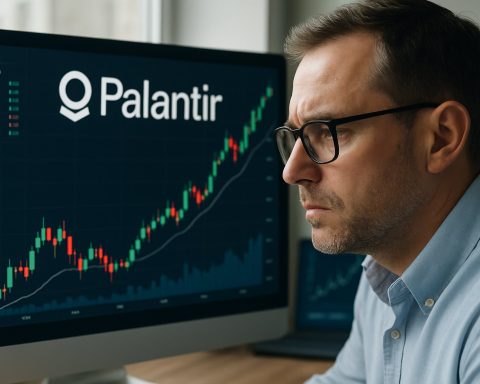- The UK is poised to become a global leader in digital assets, leveraging its “second-mover advantage.”
- Ripple highlights the UK’s strong infrastructure, global reputation, and regulatory foresight as ideal conditions for digital finance leadership.
- Projections indicate digital assets could encompass up to 10% of global capital markets by 2030, with values reaching $4 to $5 trillion.
- Clear and coherent regulatory action is urgent to realize this potential.
- Stablecoins face uncertainty, requiring a robust regulatory framework from the UK’s Financial Conduct Authority.
- The UK must act decisively to protect consumers and foster innovation, using its historical expertise in FX, capital markets, and fintech.
- This presents an opportunity for Britain to not just participate in the digital revolution, but to lead it.
The United Kingdom stands at a pivotal crossroads, with the beckoning promise of becoming a global leader in the intricate world of digital assets. Ripple, a prominent pillar in the blockchain community, has fervently urged UK policymakers to capitalize on what industry experts call a “second-mover advantage.” This potential advantage positions the UK not only as a keen observer but as a savvy innovator poised to learn from the experiences and missteps of digital pioneers elsewhere.
Nestled amidst the city’s historic financial prowess, the pulse of London quickens as it aims to transform into a modern hub for cryptocurrency and blockchain technology. During Ripple’s recent gathering of minds in the heart of London’s financial district, key players resonated with a shared vision: the UK possesses the unique blend of infrastructure, global reputation, and regulatory foresight needed to shape the future of digital finance.
In this rapidly evolving sector, the urgency for action mirrors the pressing tick of a stopwatch. Projections suggest that by 2030, digital assets might capture up to 10% of the global capital markets, potentially soaring to a staggering $4 to $5 trillion in value. The prospect is both tantalizing and daunting—a call to swift legislative action providing clear, coherent regulation becomes imperative.
Yet, amidst this digital renaissance, the shadow of uncertainty looms over stablecoins, the digital tokens pegged to traditional currencies. Serving as the backbone of today’s crypto economy, stablecoins necessitate a sturdy regulatory framework to thrive. The UK’s Financial Conduct Authority is under increasing pressure to redefine its landscape to welcome both domestic and international stablecoin innovations.
As this financial symphony unfolds, the message rings clear: the UK must shed any lingering hesitations and lead with conviction. By crafting policies that safeguard consumers while nurturing innovation, the UK can emerge as a beacon of responsible digital growth. In the realms of FX, capital markets, and fintech, Britain’s historical expertise provides both a foundation and a springboard into the frontier of digital finance. The moment is ripe for the UK to leap, ensuring the nation does not merely follow the digital revolution but indeed, leads it.
Why the UK Must Act Now to Dominate the Digital Asset Sector
The Urgent Call for UK Leadership in Digital Assets
The United Kingdom, historically a financial powerhouse, finds itself at a critical juncture to reinvent its standing in the global market by embracing digital assets. With each tick of the economic clock, the UK inches towards an opportunity to capitalize on the burgeoning digital economy, directly leveraging insights gleaned from early adopters in other regions.
Unveiling the “Second-Mover Advantage”
The concept of a “second-mover advantage” highlighted by Ripple constitutes a strategic edge for the UK. By observing and learning from the challenges faced by pioneering countries in digital asset adoption, the UK can avoid similar pitfalls and implement more refined policies. This advantage is crucial in the rapidly evolving sectors of finance technology and cryptocurrency, where timely yet informed decisions can make or break market positioning.
How the UK Can Address Regulatory Necessities
1. Creating a Robust Regulatory Framework: The development of comprehensive regulations will be crucial to protect investors and facilitate innovation. Clear guidelines will instill confidence in international investors and encourage the entry of fintech startups into the UK market.
2. Stablecoin Framework: There is enormous potential in setting a global standard for stablecoin regulation. The FCA could pioneer a regulatory environment that not only accommodates but encourages stablecoin innovations, drawing international businesses and developers to the UK.
3. Proactive Engagement with Industry Leaders: Regular dialogues between policymakers and digital finance frontrunners can drive forward-effective policies. Industry roundtables and public consultations will ensure that the voices at the forefront of innovation contribute to the shaping of policies.
Market Forecast and Opportunities
According to projections, digital assets could exceed a market valuation of $4 to $5 trillion by 2030, capturing an estimated 10% of global capital markets. The UK, with its rich historical ties to global finance, is strategically poised to seize a significant share of this pie by taking proactive steps today.
Real-World Use Cases and Implications
– Financial Accessibility: Implementing friendly crypto regulations can spearhead financial inclusivity, allowing individuals across various socio-economic backgrounds easier access to mainstream financial services.
– Economic Growth: Adoption of blockchain technology across industries can boost economic growth and innovation, attracting foreign investments and stimulating local economies.
Reviews & Comparisons with Global Counterparts
Other nations, like Switzerland and Singapore, have already established themselves as crypto-friendly jurisdictions through forward-thinking regulations and incentives for blockchain enterprises. The UK can learn from these models to craft its regulatory landscape, ensuring it doesn’t fall behind in this digital race.
Navigating Uncertainty: Controversies and Limitations
As with any emerging technology, digital assets come with uncertainties regarding market integrity, consumer protection, and technological risks. The UK must balance these considerations against the economic and innovative benefits of embracing digital assets.
Actionable Recommendations
– Immediate Policy Formation: Form task forces comprising industry experts and governmental bodies to rapidly draft initial regulatory frameworks.
– Strengthen International Alliances: Collaborate with other crypto-friendly nations to harmonize regulations, thus facilitating cross-border crypto trade and currency exchange.
– Investor and Public Education: Launch public education campaigns to demystify digital assets and promote their responsible usage and benefits.
Quick Tips
– Stay informed about policy changes by subscribing to updates from the FCA and other financial bodies.
– Engage in community dialogues and forums to voice opinions and concerns regarding the digital asset landscape.
– Consider exploring the potential of stablecoins and digital assets for investment diversification.
For further insights on how the UK can shape its digital finance future, visit the official website of Ripple.
By spearheading the push towards cohesive and clear regulations, the UK can not only participate in the digital asset revolution but lead it, leveraging its historic financial capital to ensure a prosperous economic future.









